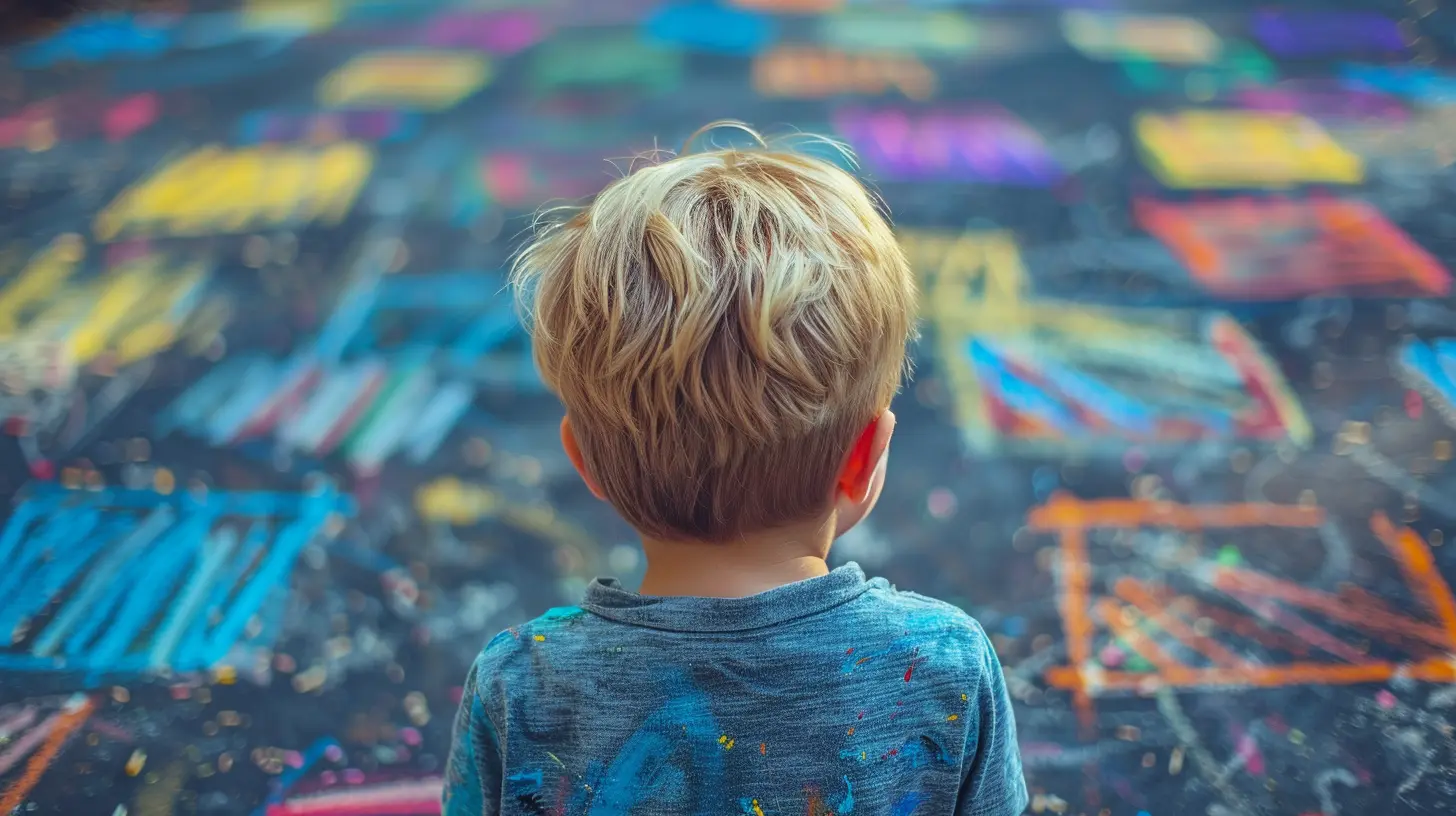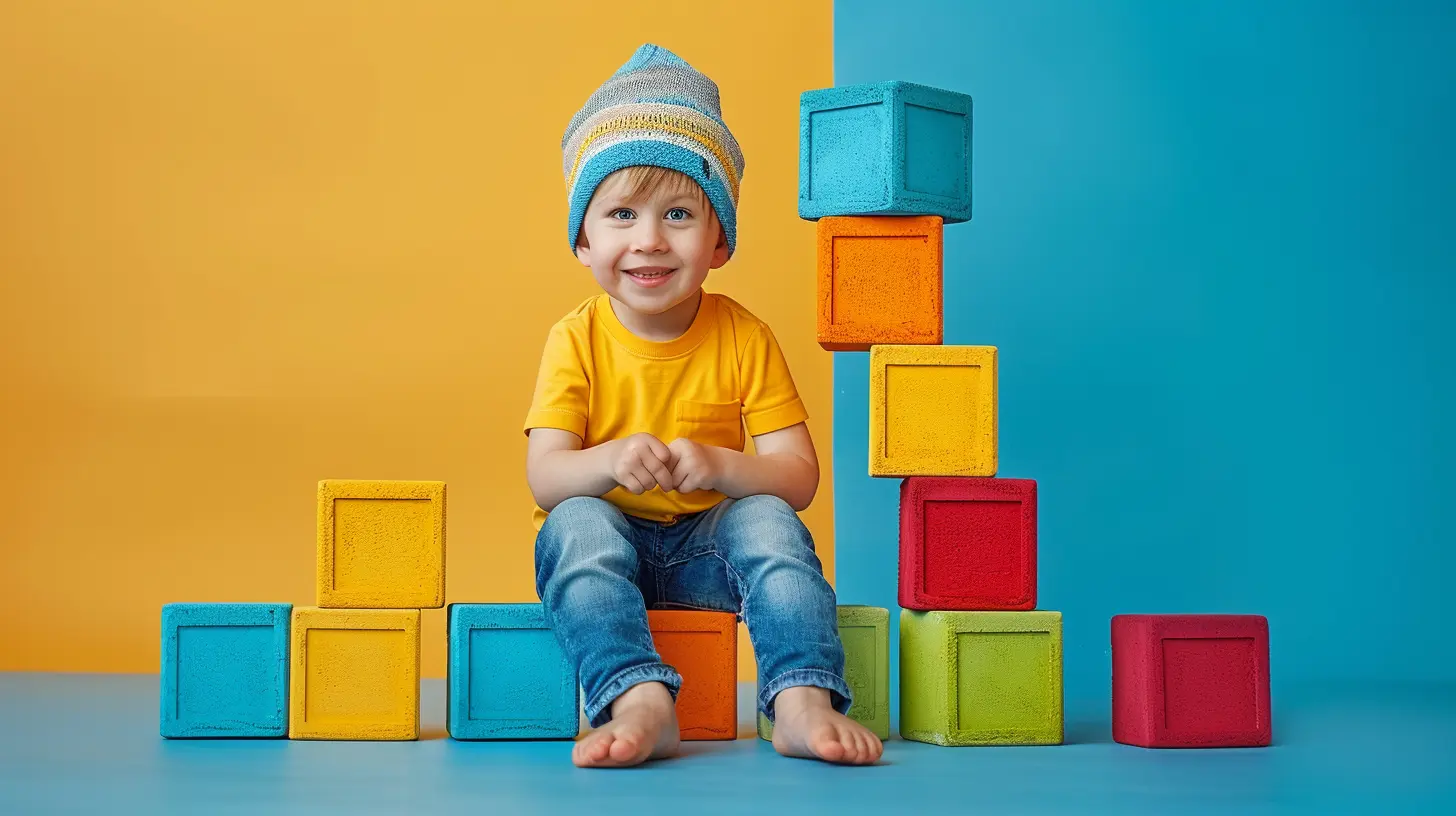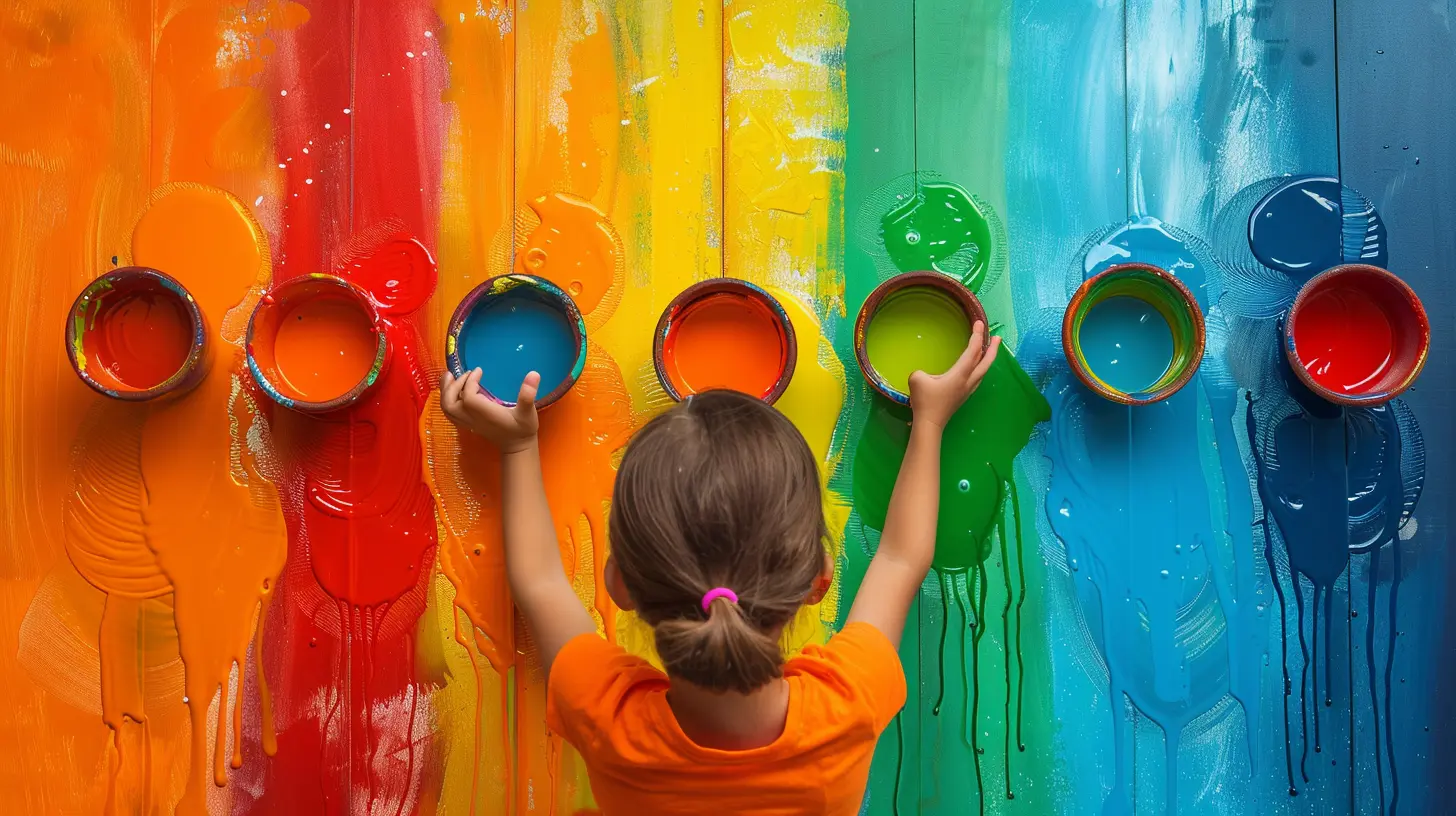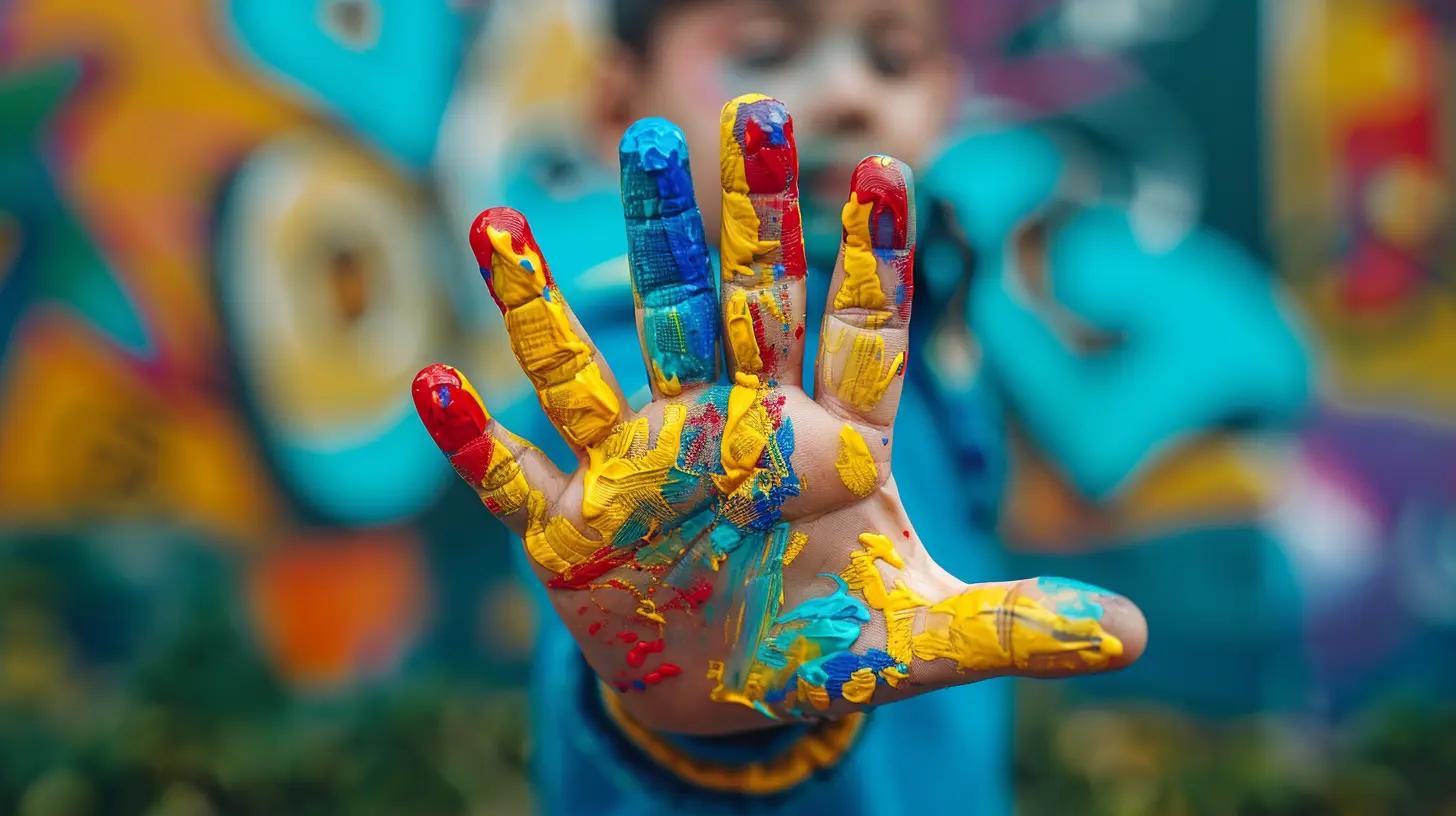Creative Ways to Teach Preschoolers Essential Skills
12 September 2025
Have you ever tried to sit a preschooler down and explain something like sharing or counting? If you have, then you already know — it's like trying to brush a cat’s teeth! Preschoolers are curious little humans with short attention spans and energy for days. But here's the good news: teaching them important life skills doesn't have to feel like a struggle. In fact, it can (and should) be fun, messy, silly, and wildly creative.
In this post, we're diving into creative ways to teach preschoolers essential skills—things like problem-solving, communication, motor skills, and emotional regulation—without them even realizing they're learning. Ready to roll up your sleeves and make learning magical? Let's go.
Why Creativity Matters in Early Childhood Learning
Preschool-aged kids are like sponges—soaking up the world around them through play, movement, and imagination. Unlike older children or adults, they don’t learn best by sitting still or listening to long explanations. Their brains are wired for hands-on experiences that are engaging and, most importantly, fun.By using creative methods, you’re feeding both sides of their little brains—boosting development, encouraging curiosity, and making your life a whole lot easier. It’s a total win-win.
1. Make Learning a Game
Let’s face it—preschoolers would rather play than do anything else. So why not use that to your advantage?Turn Daily Tasks into Challenges
Things like getting dressed, brushing teeth, or picking up toys can become mini-games:- “Let’s see if you can brush your teeth before the timer runs out!”
- “Can you find all the red toys and put them in the basket?”
- “Pretend your pajamas are superhero gear. How fast can you get into them?”
Try Educational Board Games
Simple board games like “Hi Ho! Cherry-O” or “Candy Land” teach counting, turn-taking, and color recognition without feeling like work.Games help build:
- Cognitive skills (like memory and logic)
- Social skills (like taking turns and losing gracefully)
- Fine motor skills (when they move pieces or deal cards)
Bonus? Kids learn better when they're laughing.
2. Arts and Crafts Are Learning Goldmines
Breaking out the glitter and glue isn't just for fun (though it's definitely a blast). Arts and crafts help teach all kinds of foundational skills.Skills Developed Through Crafts:
- Fine motor skills – Cutting, gluing, coloring, and painting strengthen little hands for writing later on.- Problem-solving – “How can I make this paper into a butterfly?”
- Patience and focus – Completing a project teaches them how to work through a task.
Don’t worry if it gets messy (it will). Embrace the chaos—it’s all part of the learning process.
Creative Craft Ideas:
- Paper plate emotions – Make faces showing different feelings to teach emotional recognition.- Color mixing – Combine paints and guess what color they’ll make.
- Junk art – Use recycled materials to create wild inventions.

3. Get Moving with Learning Through Play
Preschoolers are natural wiggle worms, and leaning into that can really boost how well they absorb new info.Movement-Based Learning Ideas:
- Alphabet hopscotch – Write letters on the ground and have them jump to the ones you call out.- Shape scavenger hunt – “Find something that’s a circle!” and have them zoom around the house searching.
- Dance party directions – “Freeze when the music stops,” or “Jump every time you hear the word ‘blue.’”
When kids are physically involved, they connect learning with movement, which helps with memory and coordination.
4. Use Storytelling and Songs to Teach Concepts
Little ones LOVE a good story or a catchy tune. Why? Because their imaginations are in full bloom, and music just clicks with them.Storytelling Builds:
- Vocabulary- Imagination
- Listening skills
- Empathy
You don’t need to be Shakespeare or Beyoncé. Just use funny voices and silly rhymes. Want to teach kindness? Make up a story about a dragon who shares his cupcakes. Want to teach counting? Sing “Five Little Ducks” while doing finger play.
Stories and songs stick in their heads far longer than lectures ever could.
5. Encourage Role Play and Pretend Time
Let’s be real—when your child puts a colander on their head and calls themselves “Captain Broccoli,” they’re not just being silly. They're learning. Pretend play is actually a preschool brain workout.How Pretend Play Helps:
- Boosts language development- Enhances creativity
- Teaches social-emotional skills
- Builds understanding of real-life concepts
Set up a pretend store, a doctor’s office, or a camping site in your living room. Give them props and let their imagination run wild. Then join in and follow their lead.
Let your child be the boss for once—it builds confidence and social smarts.
6. Practice Everyday Math Naturally
Math for preschoolers doesn’t mean worksheets. It means making sense of numbers in their everyday world.Easy Math Moments:
- Cooking – “We need 3 scoops of flour. Count with me!”- Setting the table – “How many forks do we need for 4 people?”
- Snack sorting – “Group your crackers by shape or color.”
These “real world” math activities help make numbers relatable and hands-on, which is exactly what preschool minds need.
7. Grow Emotional Intelligence Through Conversation
Emotional skills are just as important as academic ones—maybe even more so at this age. Helping kids understand and handle their feelings prepares them for healthy relationships and effective communication down the line.Simple Ways to Support Emotional Growth:
- Name emotions often – “You look frustrated. Is that how you’re feeling?”- Read books featuring big feelings – Like "The Color Monster" or "When Sophie Gets Angry."
- Use puppets or dolls to role-play – It’s easier for some kids to talk through a stuffed animal than face-to-face.
Keep conversations low-pressure and judgment-free. You’re teaching them it's okay to feel all the feelings—they just need help figuring out what to do with them.
8. Sensory Play: Learning Through Touch, Smell, and Sound
Sensory activities are more than just squishing Play-Doh or playing with rice bins—they actually help wire your child’s brain for learning.Sensory Play Boosts:
- Focus- Language
- Creativity
- Emotional regulation
Put together a few sensory bins with themes—try ocean animals in blue water beads, or construction toys in kinetic sand. You can even make your own scented playdough or let them finger paint with pudding!
It may seem like they’re “just playing,” but their brains are making big developmental leaps.
9. Use Technology Intentionally
Yes, screen time can be used for learning—when it’s done in moderation and with intention.Look for apps or shows that:
- Encourage interaction (like answering questions or solving problems)
- Are age-appropriate and ad-free
- Offer follow-up activities you can do together offline
Just remember—technology should be a tool, not a babysitter. Use it to spark curiosity and then go do something hands-on.
10. Celebrate Effort, Not Just Success
This one's huge. Preschoolers thrive when they feel encouraged and capable. If learning feels scary or frustrating, they’ll shy away from trying new things.Ways to Encourage a Growth Mindset:
- Praise their effort and bravery, not just the outcome.- “I love how hard you worked on that painting!”
- “You kept trying even when it got tricky. That’s awesome!”
- Let them see you make mistakes — and handle them with grace.
- Celebrate small wins (even if the shoe’s on the wrong foot).
When kids feel safe to make mistakes and try again, they become resilient little learners.
The Bottom Line: Keep It Playful, Keep It Real
Teaching preschoolers isn’t about drilling facts or forcing flashcards. It’s about meeting them where they are—with creativity, patience, and lots of giggles.This time in your child’s life is precious (and yes, sometimes chaotic). But with a little imagination, every moment—from snack time to bath time—can be a chance to teach, connect, and grow together. So grab those crayons, sing those silly songs, and let your inner child come out to play.
Because when learning feels like playing, your preschooler will want to do it all day.
all images in this post were generated using AI tools
Category:
School ReadinessAuthor:

Max Shaffer
Discussion
rate this article
1 comments
Jordan Larsen
Absolutely love these creative ideas! Turning learning into a fun adventure is the best way to engage little minds. Who knew mastering skills could be so playful? Keep the fun rolling! 🌈✨
September 17, 2025 at 3:11 PM

Max Shaffer
Thank you! I'm thrilled you enjoyed the ideas! Making learning fun is so important for young minds. 🌟


